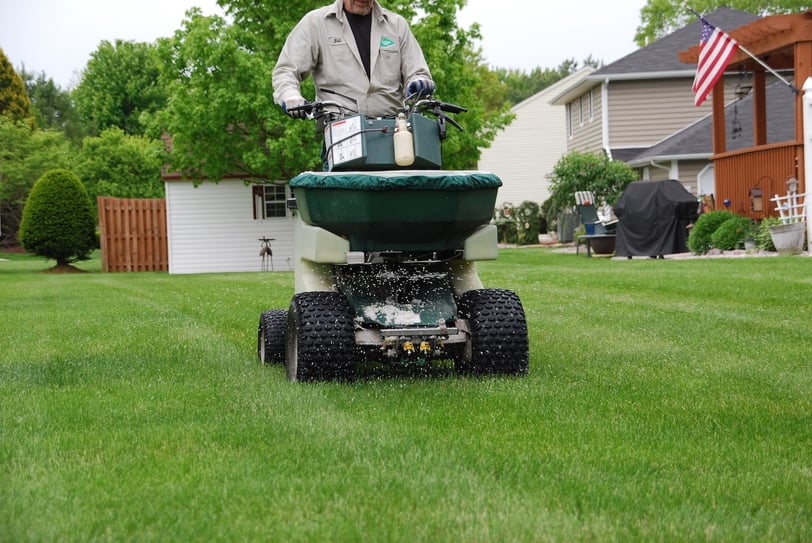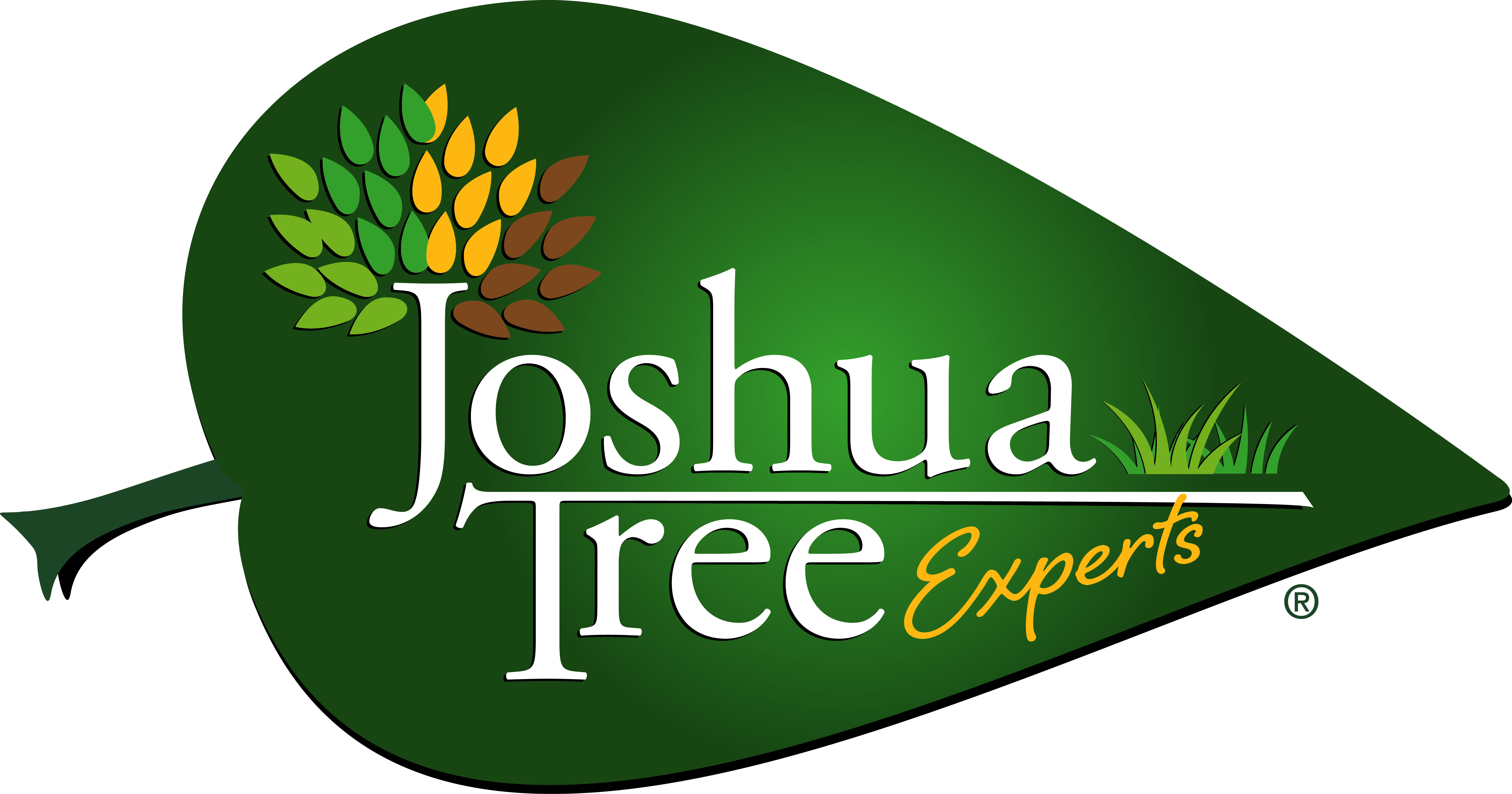Your lawn needs certain things to perform its best—proper fertilization being a big one. But you might have reservations about how fertilizing and mowing mix. Does fertilizing your lawn just mean more mowing for you?
Because we’ve gotten this question many times before, we know that it’s a concern some of our clients may have. We want to help answer this question and provide some additional information that will help set you up for success. We understand you want a great-looking lawn but you don’t want a ton of extra work.
Here are a few insights that will help you understand how fertilizing and mowing can work to your benefit.
1. You May Need to Change Your Mindset about Mow Height
If you’ve worked with Joshua Tree before or even just read some of our blog articles, then you know we’re all about transparency. We’re going to tell it like it is because that’s in the best interest of our clients. So, let’s get right to your question about how fertilizing the lawn and mowing will impact one another.
Fertilizing does increase growth. This is particularly true in the spring. Fertilizer contains nutrients that your lawn needs to perform its best and this can stimulate the lawn to grow more vigorously.
However, it doesn’t necessarily mean a ton of extra mowing, and we’ll explain why.
The truth is, most people already mow their lawns too short. We understand that people like the heavily cropped look of a super short lawn but frankly, that’s not good for your grass.
The ideal mowing height for lawns is 3.5 to 4 inches. At this height, your grass is at its healthiest. When lawns are mowed too short, they’re put under a tremendous amount of stress. This is often the reason why lawns turn yellow or see sudden weed pressure.
When we come in and start talking about getting a lawn into better shape we talk about starting a fertilization program and improving the mowing habits. When we can help homeowners understand that super short isn’t always best, then they suddenly realize they’re not going to necessarily be mowing all that much more.
2. Some Faster Growth Outweighs the Downsides of Skipping Fertilization
If you consider faster grass growth a downside to fertilizing and are considering skipping this service as a result, you need to consider what that could mean for the health of your lawn. There is tremendous payoff for having a lush green lawn that is free of weeds. Yes, it can mean some faster growing grass, but you really can’t have the beautiful lawn you desire if you are going to skip fertilization.

While our programs do increase growth, mostly during the spring, our treated lawns are also in much better condition. They can withstand tough periods, like dry spells, much better than lawns which have not been treated.
If you were to let your lawn go without treatments, it’s not going to be able to withstand the environmental stress that could end up being put on it. It might perform okay for a while but when a dry spell comes along you’ll notice it turning brown and bare patches appearing. You might start seeing weeds popping up and as it weakens, it might become subject to disease and pest problems.
Over time, nutrients will deplete even more, and the lawn is only going to get worse.
Considering everything that could go wrong when a lawn is struggling, most homeowners decide they’d rather deal with some rapid growth than put their lawn at risk of some serious problems.
3. Fertilizing the Lawn and Mowing Can Work Together
We get a lot of questions about mowing after fertilization. While a lot of homeowners believe that if they mow their lawn after a fertilization treatment it will pick up granules, in reality, there is not enough suction in the mower to cause a significant issue. Even if you have a bagger on your mower, you do not need to hold off from mowing after a granular lawn fertilization.
In reality, granular materials will fall down to the soil below and will stay put. They cannot be jostled enough to cause any issues with your results.
Let Joshua Tree Help Answer All of Your Mowing and Fertilizing Questions—and More
The bottom line is that your lawn may survive without fertilizer, but it’s certainly not going to look its best. That means that dealing with some faster growth is worth the tremendous payoff that you get from a healthy and thriving lawn.
Of course, getting those amazing results is contingent upon using a company that invests in high-quality fertilization products. The truth is, there are many different products to choose from and they are not all created equal. If you’re comparing two different lawn care programs and one costs more, it could be that the more expensive company is using better products.
At Joshua Tree, we also use biostimulant additives with our lawn fertilizing program. Biostimulants are organic materials that when applied in small quantities, enhance the development of the grass. This is an added benefit that gives you extra value out of your investment in a healthy, green lawn.
High-quality fertilization coupled with smart mowing habits in which the lawn is not cut too short will ultimately help get you the lawn that you’re after.
We understand that you don’t know everything there is to know about mowing and fertilizing but at the end of the day, our goal is to be a trusted resource for all things related to your lawn. If you have questions about lawn fertilizing and mowing, or any other lawn care issues, we’re here to help.
With the right care for your lawn, you’ll gain valuable peace of mind. If you’re interested in having your lawn inspected and its health assured, contact us for a free quote or give us a call at 833-JTE-TREE.
Image sources: lawn mower



